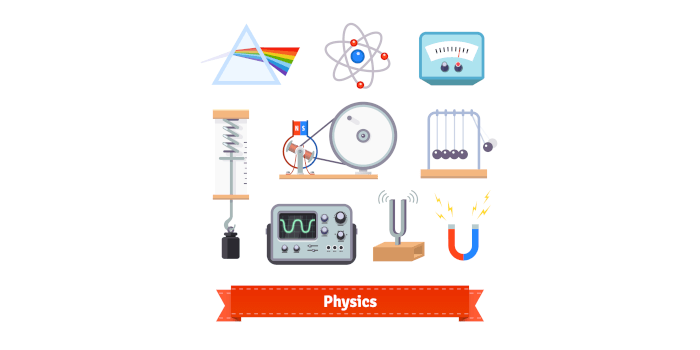Octopus is a computer package aimed at the simulation of the electron-ion dynamics of finite systems, both in one and three dimensions, under the influence of time-dependent electromagnetic fields.
The electronic degrees of freedom are treated quantum mechanically within the time-dependent Kohn-Sham formalism, while the ions are handled classically. All quantities are expanded in a regular mesh in real space, and the simulations are performed in real time.
Although not optimized for that purpose, the program is also able to obtain static properties like ground-state geometries, or static polarizabilities. The method employed proved quite reliable and general, and has been successfully used to calculate linear and non-linear absorption spectra, harmonic spectra, laser induced fragmentation, etc. of a variety of systems, from small clusters to medium sized quantum dots.
Nuclei are described classically as point particles. Electron-nucleus interaction is described within the Pseudopotential approximation.
Features include:
- Theory:
- Density Functional Theory for ground-state calculations.
- LDA, GGA and OEP functionals available through libxc
- Time-dependent DFT for response.
- Density Functional Theory for ground-state calculations.
- Systems:
- Works in 1D, 2D and 3D.
- Periodic boundary conditions in 1, 2, or 3 directions (only for ground state calculations).
- Linear Response:
- Through time-propagation:
- Static polarizabilities.
- Absorption spectra (singlet, triplet).
- Marc Casida’s formulation of response:
- Electronic excitations.
- Sterheimer (frequency dependent) linear response formalism:
- Static and dynamic electric polarizabilities (including resonant response).
- Static and dynamic electric first hyperpolarizabilities (including resonant response).
- Static magnetic susceptibilities.
- Phonon spectra.
- Through time-propagation:
- Non-linear response – Dynamics:
- Ehrenfest dynamics for the nuclei.
- Real time TDDFT propagation.
- Emission spectra, harmonic generation.
- Optimal control theory.
- Car-Parrinello Molecular Dynamics (development).
- Technical:
- Norm-conserving pseudopotentials (most commonly used formats).
- Real space grid discretization (no basis sets).
- Curvilinear coordinates.
- Parallelization in domains and in states.
- Runs both in single and double precision.
Website: octopus-code.org
Support:
Developer: Alberto Castro, Heiko Appel, Angel Rubio, Florian Lorenzen, Miguel A.L. Marques, Micael Oliveira, Carlo Andrea Rozzi, Xavier Andrade, Danilo Nitsche
License: GNU General Public License v2.0
Octopus is written in Fortran. Learn Fortran with our recommended free books and free tutorials.
Return to Scientific | Return to Physics Tools
| Popular series | |
|---|---|
| The largest compilation of the best free and open source software in the universe. Each article is supplied with a legendary ratings chart helping you to make informed decisions. | |
| Hundreds of in-depth reviews offering our unbiased and expert opinion on software. We offer helpful and impartial information. | |
| The Big List of Active Linux Distros is a large compilation of actively developed Linux distributions. | |
| Replace proprietary software with open source alternatives: Google, Microsoft, Apple, Adobe, IBM, Autodesk, Oracle, Atlassian, Corel, Cisco, Intuit, SAS, Progress, Salesforce, and Citrix | |
| Awesome Free Linux Games Tools showcases a series of tools that making gaming on Linux a more pleasurable experience. This is a new series. | |
| Machine Learning explores practical applications of machine learning and deep learning from a Linux perspective. We've written reviews of more than 40 self-hosted apps. All are free and open source. | |
| New to Linux? Read our Linux for Starters series. We start right at the basics and teach you everything you need to know to get started with Linux. | |
| Alternatives to popular CLI tools showcases essential tools that are modern replacements for core Linux utilities. | |
| Essential Linux system tools focuses on small, indispensable utilities, useful for system administrators as well as regular users. | |
| Linux utilities to maximise your productivity. Small, indispensable tools, useful for anyone running a Linux machine. | |
| Surveys popular streaming services from a Linux perspective: Amazon Music Unlimited, Myuzi, Spotify, Deezer, Tidal. | |
| Saving Money with Linux looks at how you can reduce your energy bills running Linux. | |
| Home computers became commonplace in the 1980s. Emulate home computers including the Commodore 64, Amiga, Atari ST, ZX81, Amstrad CPC, and ZX Spectrum. | |
| Now and Then examines how promising open source software fared over the years. It can be a bumpy ride. | |
| Linux at Home looks at a range of home activities where Linux can play its part, making the most of our time at home, keeping active and engaged. | |
| Linux Candy reveals the lighter side of Linux. Have some fun and escape from the daily drudgery. | |
| Getting Started with Docker helps you master Docker, a set of platform as a service products that delivers software in packages called containers. | |
| Best Free Android Apps. We showcase free Android apps that are definitely worth downloading. There's a strict eligibility criteria for inclusion in this series. | |
| These best free books accelerate your learning of every programming language. Learn a new language today! | |
| These free tutorials offer the perfect tonic to our free programming books series. | |
| Linux Around The World showcases usergroups that are relevant to Linux enthusiasts. Great ways to meet up with fellow enthusiasts. | |
| Stars and Stripes is an occasional series looking at the impact of Linux in the USA. | |
